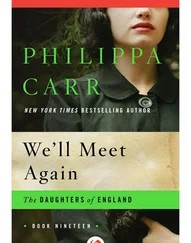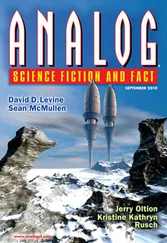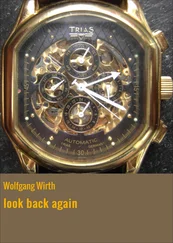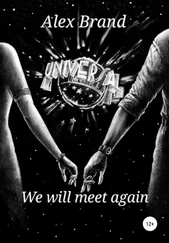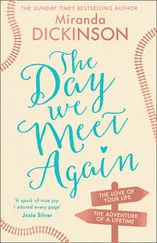I knew a lawyer in Chicago who smoked the same cigarettes as my friend — Parliaments. Every Sunday, dressed in a brown suit and a white shirt, and carrying a cane, he would come to a pseudo-Lithuanian restaurant where I worked. When people say that you can find every culture in the world in America, I always say, “You mean, you can find every culture’s surrogate there.” And on Sundays I used to fill in for a Lithuanian student who worked in that supposedly Lithuanian restaurant. The waitresses said that the lawyer had gone bankrupt. He would barely touch the duck he always ordered. The man would cut his bird up into little pieces, as if there were a diamond ring hidden in the roast, and then, after a half hour of this, with a disappointed look on his face, he would smoke a cigarette — always sitting at the same table in the smoking section. Once, without even finishing his cigarette, he leaped up, threw some cash on the table, and ran out into the street to hail a yellow cab. I’d already worked about three Sunday shifts in that restaurant before I found out that the lawyer was blind. I’d like to meet him again, too. I’d like to meet him again the way I sometimes want to get to the end of a movie.
Another blind person I’d like to meet again is my uncle. He started going blind when he was still a student learning Spanish and English at the Pedagogical Institute. He didn’t finish at the Institute, because back then there weren’t any tape recorders, computers, or other audio tools accessible to the blind. He went to a clinic in Odessa, and there they did the first operation — they took some skin from his lower lip and patched it over one of his eyeballs. There was an Armenian in the ward who couldn’t distinguish between gender and person in foreign languages; when he went to fetch wine, speaking Russian, he’d refer to himself in the third person feminine. When Uncle’s turn came to fetch the wine, he got lost. With one covered eye and a swollen lip. While he was walking through the courtyard of the dilapidated hospital, he saw a half-naked woman standing in an open window, leaning against the window frame. Uncle even thought that the famous Odessa Catacombs started there. “She might have been naked, that guide to the Catacombs,” he said many years later, “but I don’t remember seeing a bit of her treasure, the center of her life, if you know what I mean, below the windowsill. When I went on my way, a desert that wasn’t on the map of Ukraine spread out on the other side of the building.” Uncle didn’t carry a white cane and walked the streets of his hometown quickly, seeing everything with the eyes of memory. But, once, he knocked over a baby carriage standing on the little bridge — knocked it over with its occupant still on board. The child’s mother for some reason called Uncle impotent, and the carriage floated down the creek to the Nev  žis. The boy survived, and was carried back to shore on the back of a swan, later becoming an honorary citizen of that town; he now works at the Ministry of Transport. Uncle and I still exchange gifts from time to time. My last gift to him was a Catalan woman singing “Bésame Mucho.” I went up to her after a concert at an old manor house. I told her about Uncle’s unfinished studies in Spanish, and she, without even waiting for the end of my story, made a gift of that song to him by singing it right there into my cell phone. Now when he calls, they sing together. On my end there’s blindingly white Catalan teeth lighting up the telephone, while, at the other end of the country, there’s my uncle: sagging pajamas, wool socks, and a room without light. Why would it need light? Light had no function there. Music now means the same to my uncle as light does to others. But when I was three years old, Uncle could still see. (“Don’t worry,” he says, “I can still remember how tea turns lighter in the cup when you put some lemon in it.”) He used to like to photograph women, particularly those who never seemed to change with age; chess pieces on a board, if they were in stalemate; and pale sprouts breaking through the sidewalk. Shouting “Hola!” he used to pick me up and toss me into the air, using only one hand, all the way to the ceiling, which at the time I thought of as a convenient wooden sky that my parents had decided to rent. Of all the small children tossed into the air with only one hand, there’s only one I’d like to meet again: my daughter, as a small child. An egotistic wish, as she was someone who loved me unconditionally. In the kitchen, in Panev
žis. The boy survived, and was carried back to shore on the back of a swan, later becoming an honorary citizen of that town; he now works at the Ministry of Transport. Uncle and I still exchange gifts from time to time. My last gift to him was a Catalan woman singing “Bésame Mucho.” I went up to her after a concert at an old manor house. I told her about Uncle’s unfinished studies in Spanish, and she, without even waiting for the end of my story, made a gift of that song to him by singing it right there into my cell phone. Now when he calls, they sing together. On my end there’s blindingly white Catalan teeth lighting up the telephone, while, at the other end of the country, there’s my uncle: sagging pajamas, wool socks, and a room without light. Why would it need light? Light had no function there. Music now means the same to my uncle as light does to others. But when I was three years old, Uncle could still see. (“Don’t worry,” he says, “I can still remember how tea turns lighter in the cup when you put some lemon in it.”) He used to like to photograph women, particularly those who never seemed to change with age; chess pieces on a board, if they were in stalemate; and pale sprouts breaking through the sidewalk. Shouting “Hola!” he used to pick me up and toss me into the air, using only one hand, all the way to the ceiling, which at the time I thought of as a convenient wooden sky that my parents had decided to rent. Of all the small children tossed into the air with only one hand, there’s only one I’d like to meet again: my daughter, as a small child. An egotistic wish, as she was someone who loved me unconditionally. In the kitchen, in Panev  žys, she would open the cabinet door and play with the dried beans. Watching her from the side, I liked to dissemble the girl into her component parts. The hair was from her grandmother (the other one); the smile was from that portrait of my mother as a little girl; the bones and logic were from her father; the voice from me; the ability to think spatially from God. They call God the Great Designer, because he created everything. My daughter decided to follow in His footsteps as a designer. Now she’s grown up; when I look at her from the side I no longer take her apart. And I suspect that she has someone who loves her unconditionally. On her birthday, this fellow texts her, telling her where in Vilnius he’s buried this year’s presents. With a silver flour scoop, my daughter digs a little box out of the ground containing toys made just for her by the young man in question: a lantern with cats and mice hugging, umbrellas designed to shield your head from fear, and nonexistent birds of paradise engraved on its glass. And a carousel that actually turns; in place of chairs it had halved walnut shells bearing sugared almonds. Sometimes he includes a note as well.
žys, she would open the cabinet door and play with the dried beans. Watching her from the side, I liked to dissemble the girl into her component parts. The hair was from her grandmother (the other one); the smile was from that portrait of my mother as a little girl; the bones and logic were from her father; the voice from me; the ability to think spatially from God. They call God the Great Designer, because he created everything. My daughter decided to follow in His footsteps as a designer. Now she’s grown up; when I look at her from the side I no longer take her apart. And I suspect that she has someone who loves her unconditionally. On her birthday, this fellow texts her, telling her where in Vilnius he’s buried this year’s presents. With a silver flour scoop, my daughter digs a little box out of the ground containing toys made just for her by the young man in question: a lantern with cats and mice hugging, umbrellas designed to shield your head from fear, and nonexistent birds of paradise engraved on its glass. And a carousel that actually turns; in place of chairs it had halved walnut shells bearing sugared almonds. Sometimes he includes a note as well.
On the subject of unconditional lovers, I should also mention a particular man from my own biography. I was attracted to him in the same way a patient can get attracted to a psychiatrist — and vice versa … I think that, while he was with me, the world seemed brighter to him, more open, a series of discrete, colorful images, as though seen from the cars of a train traveling at great speed. We had no future as a couple: we both lived in other worlds, whereas a happy couple should live in this one. I always enjoyed something he used to say: “There are only two occasions on which I could actually say I’m happy, in this life — when I’m drunk, or when I come up with a new idea.” Once, he went to a conference in Prague. After the conference, along with his colleagues, he drank several pints of Budweiser, and I should mention that he had the silly habit of sleeping in the nude whenever possible. Unlike me, he didn’t associate a naked body with the soul; it’s just a material, he used to say, like clay, asbestos, or silk. Anyway, during the night, in his monk’s cell of a hotel room, this friend of mine got out of bed, took two steps, turned left to enter the bathroom, opened the door, went inside, and then, leaving the bathroom a moment later, he took another turn to the left, after which he slammed the door behind him. He opened his eyes in a long corridor: dim lights protruded from frosted glass lotuses, and a red runner stretched to nowhere, like something unspooling out of his dreams. There weren’t a lot of options. The first: knock on the door next to his, in which a conference participant from Poland — not always friendly to our people, but truly Christian — was sleeping. The second: wrap himself up in the carpet and present himself like Cleopatra to the Anthonys at the front desk. He bent down and felt it — no, the carpet was too stiff and too long. And yet, the woman working the registration desk that night gave him his key without even a second look — reaching out and dropping it into his outstretched palm (my friend had used a brochure about Prague’s old town as a fig leaf).
Читать дальше
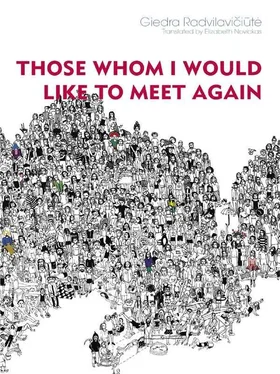
 žis. The boy survived, and was carried back to shore on the back of a swan, later becoming an honorary citizen of that town; he now works at the Ministry of Transport. Uncle and I still exchange gifts from time to time. My last gift to him was a Catalan woman singing “Bésame Mucho.” I went up to her after a concert at an old manor house. I told her about Uncle’s unfinished studies in Spanish, and she, without even waiting for the end of my story, made a gift of that song to him by singing it right there into my cell phone. Now when he calls, they sing together. On my end there’s blindingly white Catalan teeth lighting up the telephone, while, at the other end of the country, there’s my uncle: sagging pajamas, wool socks, and a room without light. Why would it need light? Light had no function there. Music now means the same to my uncle as light does to others. But when I was three years old, Uncle could still see. (“Don’t worry,” he says, “I can still remember how tea turns lighter in the cup when you put some lemon in it.”) He used to like to photograph women, particularly those who never seemed to change with age; chess pieces on a board, if they were in stalemate; and pale sprouts breaking through the sidewalk. Shouting “Hola!” he used to pick me up and toss me into the air, using only one hand, all the way to the ceiling, which at the time I thought of as a convenient wooden sky that my parents had decided to rent. Of all the small children tossed into the air with only one hand, there’s only one I’d like to meet again: my daughter, as a small child. An egotistic wish, as she was someone who loved me unconditionally. In the kitchen, in Panev
žis. The boy survived, and was carried back to shore on the back of a swan, later becoming an honorary citizen of that town; he now works at the Ministry of Transport. Uncle and I still exchange gifts from time to time. My last gift to him was a Catalan woman singing “Bésame Mucho.” I went up to her after a concert at an old manor house. I told her about Uncle’s unfinished studies in Spanish, and she, without even waiting for the end of my story, made a gift of that song to him by singing it right there into my cell phone. Now when he calls, they sing together. On my end there’s blindingly white Catalan teeth lighting up the telephone, while, at the other end of the country, there’s my uncle: sagging pajamas, wool socks, and a room without light. Why would it need light? Light had no function there. Music now means the same to my uncle as light does to others. But when I was three years old, Uncle could still see. (“Don’t worry,” he says, “I can still remember how tea turns lighter in the cup when you put some lemon in it.”) He used to like to photograph women, particularly those who never seemed to change with age; chess pieces on a board, if they were in stalemate; and pale sprouts breaking through the sidewalk. Shouting “Hola!” he used to pick me up and toss me into the air, using only one hand, all the way to the ceiling, which at the time I thought of as a convenient wooden sky that my parents had decided to rent. Of all the small children tossed into the air with only one hand, there’s only one I’d like to meet again: my daughter, as a small child. An egotistic wish, as she was someone who loved me unconditionally. In the kitchen, in Panev 